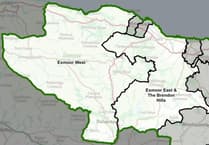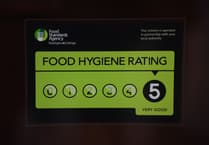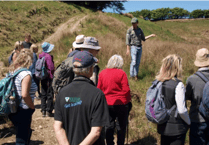SIR — On September 5 last year, a digger arrived to excavate the footings for our new conservatory.
Sadly the disturbance of the ground around the old water main created a leak. The main stop tap in the road was very stiff, probably not having been used for several years or even decades.
So I rang Wessex Water and was told they would send a man round the next day to turn off the mains. I politely requested that it really ought to be done sooner as the leak was in danger of flooding out the village shop and lower town.
Luckily there was a team working in Dunster and they sent a man in a van to turn off the supply. Less than a quarter of an hour later he confirmed that the tap was stiff, by snapping the handle off the top of the tap.
He advised me that when we were ready to replace the mains pipe into the house, I was to make sure that I mentioned that they would need a "headless key" for turning off taps without handles.
No problem. Three days later another man in van arrived with a "headless key", with which he re-confirmed the stiffness of the stop-cock by snapping off the shaft of the tap handle.
As the stop-cock now was not quite as effective as doing its job as it had been in 1957, it was decided by man in van to replace it with a new one. Sadly he couldn't do it that day as the team who did that were in Yeovil.
However they duly turned up ten days later to replace the stop cock.
At 10am work began. Unfortunately, as the stop cock was three feet down from the road surface, a 3 ft by 3 ft hole had to be dug.
A swift and competent replacement for the hapless handleless and shaftless stop-cock was in situ within hours and at 4pm supply was restored to the house when the shiny new stop-cock was opened.
Sadly the increased pressure from the mains caused the old pipe to burst a foot away from the stop-cock, requiring an even larger and by now very soggy hole to be dug to locate the fault.
At 9pm the work was done, but it was not possible to back fill the hole as they were not allowed to refill it with the stuff that had successfully done its job as sub-soil for the last 100 years, and the large pile of rock, clay and stones was taken away, presumably to be put in a larger hole in the ground somewhere near Yeovil. Another team would be sent.
That team of three men duly arrived two days later and back-filled the hole with very nice new aggregate, but unfortunately they couldn't complete the job as they "don't do the tarmac".
The tarmac gang of four men arrived three days later and completed a nice new metre square of fresh tarmac around the new cast iron stop-cock cover (presumably the old cast iron stop-cock cover didn't comply with EU regulation, although it did look very similar to all the other stop-cock covers all along the road).
The very nice tarmac men did offer to do my drive with the bit left over, but I thought it was slightly inappropriate and declined the offer.
A good and tidy job, of which all should be proud. And quite right that a "hole in the road inspector" should arrive in mid December to check the quality of the workmanship.
His job, it appears, is to do random checks on repaired holes in the road to make sure they meet the required specification, to make sure that public money is not wasted, that roads are safe and free of hazards.
He drilled a bore-hole and took away a nice core sample of the completed job.
It was really quite a surprise then in January to hear sounds of the jack-hammer and compressor in the road.
It transpired that said "hole in the road inspector" had deemed there was not the necessary level of compaction and thickness of tarmac and the company responsible had been fined £150 as a consequence and the contents of the hole were to removed and replaced with necessarily superior and hopefully more compacted aggregate and specified thickness of tarmac. Lucky that was spotted!
So a different but no less cheerful gang of three had come from Bridgwater with large compressor and jack hammer to dig out the offending tarmac to required depth, refill and level off the bright shiny black stuff.
Sadly no offer of drive resurfacing this time - obviously more lucrative pickings elsewhere.
And so to 12th May, the sounds of bird song, the occasional horse clip-clopping along, over a nicely settled road surface.
No. I am awoken to the now familiar sound of the compressor and jack hammer, digging up the hole in the road.
I stop the team of two cheerful souls in mid chisel: "Surely this is a mistake, this can't be right, this hole in the road was repaired in January, your paperwork has got mixed up."
Wrong. Seemingly the "hole in the road inspector" had made another visit. Another bore hole, another core sample analysed, another failure to comply with statutory requirements regarding highway re-surfacing.
So now the job is done, the bird song returns, the smell of freshly laid tarmac lingers.
It does your heart good to know we look after the important things in life.
S J Parnell,
Wootton Courtenay.



